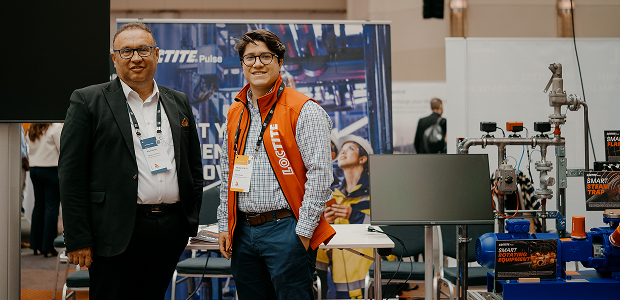
The Smart Energy Era Begins at AUTOMA 2025
Driven by environmental concerns and the need for greater efficiency, the oil and gas industry is rapidly adopting digital twins and remote monitoring. AUTOMA 2025 explores transformative technologies in dedicated sessions during the Congress in Amsterdam, the Netherlands on 13-14 October.
In the scenario of increased pressure to reduce costs and improve performance ratio, companies should balance with minimisation its ecological footprint. Hard challenges at once, however, up-to-date technologies can be transformative solutions in industrial operations.
Deloitte research indicates digital twin adoption can reduce operational downtime by as much as 70% while generating industry-wide cost efficiencies of 10-20%, significantly enhancing overall performance metrics. By combining AI predictive maintenance technology using machine learning to predict any further equipment failures, companies significantly reduce repair cost by 30% and extend life assets expectancies, creating a beneficial domino-effect on the operational and financial revenue.
AUTOMA 2025 highlights the forces reshaping the commercial status quo and demonstrates digitalisation's impact on the oil and gas sector with the first day business programme featuring the leaders talk session. Speakers from Ericsson, Saipem, Flour and other top companies are going to discuss how AI and data are fuelling innovation.
Alongside overcoming the obstacles to productivity caused by resource limitations, ensuring safe operational practices and environmental stewardship are essential for companies in the industry. As sustainability becomes imperative, remote monitoring emerges as a powerful tool for achieving emission reduction goals. According to Environmental Defense Fund, methane leaks detected via remote sensors have decreased emissions by up to 60% in monitored fields. A growing number of enterprises are adopting remote monitoring solutions.
For example, Cenosco - Gold Sponsor at AUTOMA 2025 - develops AIMS (Asset Integrity Management Software) providing a comprehensive platform for optimising asset performance and mitigating risks across the oil and gas lifecycle, featuring risk-based inspection planning, real-time corrosion monitoring and digital twin capabilities to ensure asset integrity and operational uptime while minimising environmental impact. Aside from that, Shell (AUTOMA’s 2024 Partner) has cooperated with an IoT startup to remotely monitor its wells, aiming to improve operational efficiency and reduce costs through real-time data insights. This initiative leverages sensors and data analytics to optimise well performance and predict potential issues before they escalate.
There's no denying the transformative power of technology, and the energy sector stands to gain immensely from embracing advancements. The push towards greater efficiency through innovative technologies is a positive force driving progress and creating new opportunities. AUTOMA 2025 offers a unique lens into this future, allowing participants to witness firsthand how these technologies are reshaping companies through real-world case studies.
A further roundtable discussion is dedicated to examining how digital twins are transforming the sector, illustrating the technology's growing potential. The following presentations feature the speakers' perspectives:
- Bernd Kalusche, Director Vertical Management Energy, Siemens Digital Industries at Siemens AG, presents a case study on leveraging the digital twin to optimise production and reduce carbon footprint - the research itself is a key to the industry's transition towards sustainability;
- Ravi Subramanyan, Director of Industry Solutions at HiveMQ, shares a result of data acquisition and connectivity to enable digital twins;
- Peter Gablas, Process Automation Lead Expert at Slovnaft, delves into the implementation of Field Service Management (FSM) and its impact on operational excellence;
- Ragnar Alstad, Enterprise Architect at Aker BP, explores how digital twins are revolutionising workflows and reshaping industry practices;
- Esma Gulten, Co-Founder and CEO at Gizil GmbH, highlights the applications of virtual plant solutions in advanced manufacturing.
Moreover, by fostering key discussions on digitalisation to optimise performance and promote a sustainable future, AUTOMA 2025 explores groundbreaking technologies and expands professional connections - precisely the tools needed to address today's dual challenge of operational efficiency and environmental responsibility. This makes the event particularly significant for top-level experts recognising such innovative solutions as no longer optional, but critical for the industry's sustainable transformation.
Where conversations turn into change: https://sh.bgs.group/2wv

